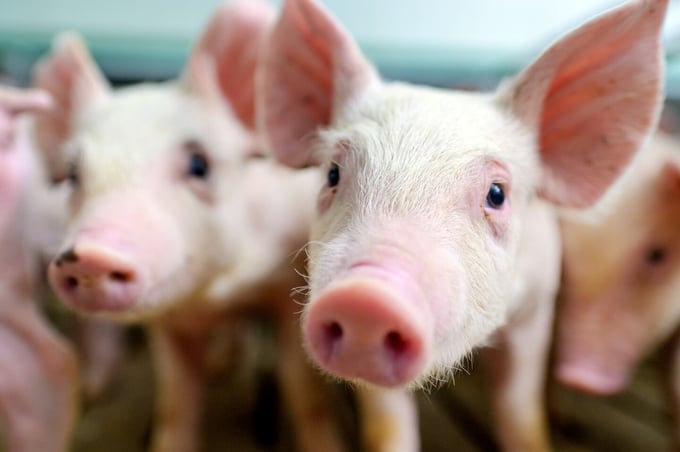May 20, 2025 | 11:41 GMT +7
May 20, 2025 | 11:41 GMT +7
Hotline: 0913.378.918
May 20, 2025 | 11:41 GMT +7
Hotline: 0913.378.918

Pigs are being genetically modified to help prevent disease in them. Photo: Adobe.com
Pork has long been a staple in dinners worldwide. Used in soups, sandwiches and more dishes, it would be hard to imagine a world without pork. But with diseases ravaging the pork industry, a company in the U.K. is hoping to change that by genetically modifying pigs that are meant for human consumption.
According to Smithsonian Magazine, a disease known as porcine reproductive and respiratory syndrome, or PRRS, costs the U.S. pork industry almost half a billion dollars annually.
Also known as blue ears disease, it causes pneumonia symptoms in baby pigs, reproductive failure in adult females and weakens their immune systems overall, per Smithsonian Magazine.
While there are vaccines against PRRS, they are only able to reduce symptoms, and antibiotics used to treat a pig’s weakened immune system can “exacerbate the development of other resistant bacterial diseases,” per Popular Science.
In order to fight back against PRRS, a company in the U.K. is genetically modifying pigs’ genes to make them more resistant to the disease.
A company called Genus released a new study where they modified the gene CD163 to make it resistant to the disease PRRS.
Using a technology that edits genes known as CRISPR, Genus modified the gene CD163 within four pigs and transferred them to reproductive female pigs, creating a new generation of pigs with more resistance to PRRS, per Smithsonian Magazine.
But the modification process actually started eight years ago at the University of Missouri with a team led by Randall Prather. Researchers believed that disabling a receptor on the gene CD163 could make pigs resistant to PRRS, according to Popular Science. CD163 is a cell that is often used by viruses to start an infection.
According to Smithsonian Magazine, it’s going to take several years until farmers will have fully resistant pigs. The company Genus is currently seeking FDA approval for the genetically modified pigs.
Until that occurs, it will be a few years until we’ll possibly see the new genetically modified pork on our dinner plates.
(Deseret)

(VAN) Attempts to bring down the price of the Japanese staple have had little effect amid a cost-of-living crisis.

(VAN) Fourth most important food crop in peril as Latin America and Caribbean suffer from slow-onset climate disaster.

(VAN) Shifting market dynamics and the noise around new legislation has propelled Trouw Nutrition’s research around early life nutrition in poultry. Today, it continues to be a key area of research.

(VAN) India is concerned about its food security and the livelihoods of its farmers if more US food imports are allowed.

(VAN) FAO's Director-General emphasises the need to work together to transform agrifood systems.

(VAN) Europe is facing its worst outbreak of foot-and-mouth since the start of the century.

(VAN) The central authorities, in early April, released a 10-year plan for rural vitalization.